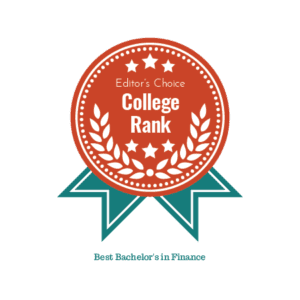Master of Science IN LIBRARY MEDIA AND INFORMATION TECHNOLOGY
Purpose
The Library Media program prepares candidates for the changing role of the school librarian in a global and technological society. They are prepared to provide leadership in the total education program, participate as active partners in the teaching/learning process, connect learners with ideas and information, and prepare students for life-long learning. They know how to instill a love of reading and can develop opportunities for their students to be effective managers of information.
Accreditation
NSU’s educator preparation programs at the baccalaureate and master’s levels are accredited by the Council for the Accreditation
of Educator Preparation (CAEP), www.caepnet.org
CAEP advances equity and excellence in educator preparation through evidence-based
accreditation that assures quality and supports continuous improvement to strengthen
P-12 student learning.
Student Learning Outcomes
- Participate as active partners in the teaching and learning process.
- Use strategies to foster learner motivation to read for learning, personal growth, and enjoyment.
- Lead and collaborate with members of the learning community to effectively design and implement solutions that positively impact learner growth and strengthen the role of the school library.
- Apply strategies to evaluate information and resources to support the school’s curriculum and learning goals.
- Model and teach ethical use of information and technology in the creation of new knowledge.
Library Media and Information Technology, M.S. - 33 hours
Professional Education - 3 hours
Select one course from the following:
Library Media and Information Technology - 25 hours
- LIBM 5013 - Introduction to Librarianship
- LIBM 5023 - Advanced Materials for Children
- LIBM 5123 - School Library Administration
- LIBM 5313 - Advanced Materials for Young Adults
- LIBM 5413 - Collection Development and Management of School Libraries
- LIBM 5513 - Information Resources and Services
- LIBM 5523 - School Library Leadership and Advocacy
- LIBM 5573 - Technology for School Librarians
- LIBM 5611 - Professional Networking and Development
-
(1 credit hr. per workshop)
-
(Author/Illustrator speaker series)
Enrichment - 3 hours
Choose one course from the list below.
Credential Requirements
Candidates who hold an Oklahoma teaching license / certificate can add Library Media Specialist to that credential by passing the approved certification test for school librarians / library-media specialists at the completion of the program. Candidates who do not hold an Oklahoma standard teaching certificate must pass the approved subject test and meet any other alternative certification requirements established by the Oklahoma State Department of Education. There are fees associated with certification testing which is administered by an outside agency under contract with the Oklahoma Office of Educational Quality and Accountability.
Out of state candidates seeking initial licensure and/or certification are advised to contact the appropriate licensing board in their state to determine specific requirements. Northeastern State University cannot confirm whether a particular licensure program meets requirements for licensure outside of Oklahoma.
NSU’s Education Certification office can assist with information regarding university recommendation for certification. To be recommended for certification, students must have a graduate-level 3.0 grade point average (GPA).
School Library Media Specialist Certificate
Location(s): Online, Tahlequah, Broken Arrow
OSRHE Program Code: 140
CIP Code: 250101
Certificate Code: 3310
Purpose
The Library Media program prepares candidates for the changing role of the school librarian in a global and technological society. They are prepared to provide leadership in the total education program, participate as active partners in the teaching/learning process, connect learners with ideas and information, and prepare students for life-long learning. They know how to instill a love of reading and can develop opportunities for their students to be effective managers of information.
Student Learning Outcomes
- Participate as active partners in the teaching and learning process.
- Use strategies to foster learner motivation to read for learning, personal growth, and enjoyment.
- Lead and collaborate with members of the learning community to effectively design and implement solutions that positively impact learner growth and strengthen the role of the school library.
- Apply strategies to evaluate information and resources to support the school’s curriculum and learning goals.
- Model and teach ethical use of information and technology in the creation of new knowledge.
Required Courses - 23 hours
- LIBM 5013 - Introduction to Librarianship
- LIBM 5023 - Advanced Materials for Children
- or LIBM 5313 - Advanced Materials for Young Adults
- LIBM 5123 - School Library Administration
- LIBM 5413 - Collection Development and Management of School Libraries
- LIBM 5513 - Information Resources and Services
- LIBM 5523 - School Library Leadership and Advocacy
- LIBM 5573 - Technology for School Librarians
- LIBM 5611 - Professional Networking and Development
- LIBM 5900 - Practicum (1 hours)
Total - 23 hours
Degree Available At
- Broken Arrow
- Online
Starting Your NSU Journey?
Make your transition to NSU as smooth and seamless as possible.
Visit our Graduate College Checklist for more information.
Career Services
What Can I Do With A Master's Degree in Library Media and Information Technology?
- Local Governments
- Schools
- Public Libraries
- Consultant
- Research Assistant
Program Chair:

Did You Know?
Employment of librarians and library media specialists is projected to grow 9 percent from 2020 to 2030. About 15,200 openings for librarians and library media specialists are projected each year, on average, over the decade. However, the total number of degrees awarded in Library Science in 2019 was only 6,204. This indicates a 2.39% decline in the number of people in the field. - U.S. Bureau of Labor Statistics; Occupational Outlook Handbook
Program Requirements
- GRE/GMAT if GPA of last 60 hours is under 3.0
Application Deadline
- Open Year Round
*Fees include: facility fee, student activity fee, infrastructure fee, cultural/scholastic lecturer fee, student ID fee, technology services fee and remedial course fee, if applicable. NSU courses taught at off campus locations or online might have additional fees assessed. These totals are tuition and fee estimations per program based on the current catalog year. Books, supplies and some fees may not be included.


